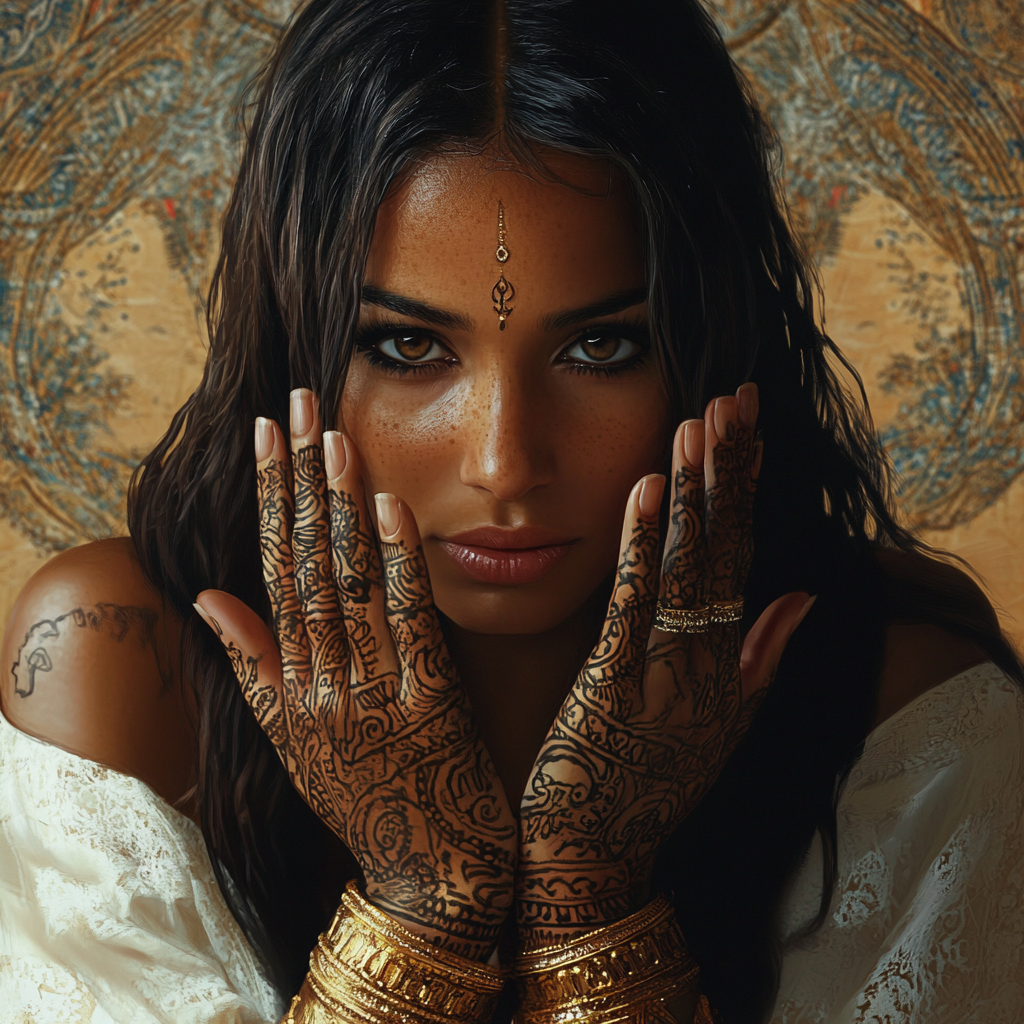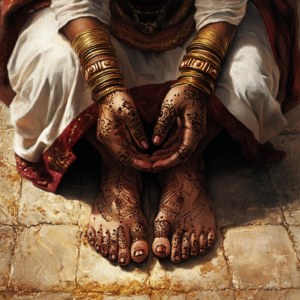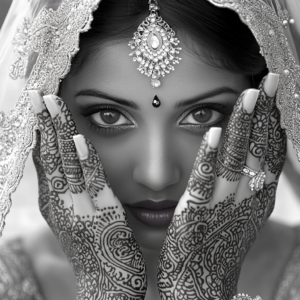The History of Mehndi: Tracing the Origins of Mehndi Art
Mehndi, the art of body decoration using henna, is not merely a form of beautification but also a profound symbol of culture, beliefs, and a connection to traditions spanning thousands of years. From the small villages in South Asia to major cities worldwide, Mehndi has become an indispensable part of significant events, carrying the marks of creativity, sophistication, and history. This article will take you on a journey to trace the origins of Mehndi art, a journey full of fascination and depth.
What is the origin of the mehndi art?
The origin of Mehndi art can be traced back to ancient regions such as South Asia, the Middle East, and North Africa, where the henna plant, which produces Mehndi, was cultivated and used thousands of years ago. Historical sites in Egypt, India, and Pakistan have provided ample evidence of Mehndi’s use since antiquity. In ancient Egypt, henna was used not only for body decoration but also as part of burial rituals, where the deceased were adorned with henna before being laid to rest, believed to protect them in the afterlife. From the small villages of India, Mehndi spread through trade routes and cultural exchanges, becoming an integral part of cultural and religious life in many civilizations.
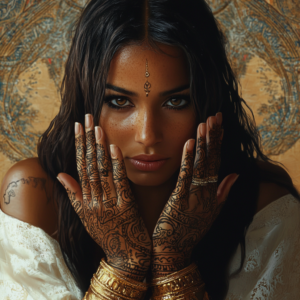
What is the history and origin of henna?
Henna, with its leaves capable of producing a natural dye, has been used for over 5,000 years. The henna plant thrives in arid and hot climates, where its leaves are harvested, dried, and ground into powder to create the characteristic dye. Traces of henna have been found in archaeological sites across Egypt, India, and Pakistan, proving that its use likely began very early in human history. Henna was not only used in religious ceremonies but also in social and personal events such as weddings, festivals, and other rituals.
Why is the origin of henna hard to trace?
Tracing the exact origin of henna is a complex challenge due to the cultural exchanges and migrations of peoples over many centuries. Henna did not exist solely in one culture but spread across regions from the Middle East to North Africa and South Asia, through trade routes and conquests. This has created a rich diversity in the ways henna is used and its significance in different cultures, from body decoration to religious rituals, making its precise origins difficult to pinpoint. Furthermore, the widespread use of henna in various events and rituals has also blurred its historical traces, making it hard to trace.
What is the art of mehndi?
The art of Mehndi, with its intricate patterns drawn on the hands, feet, and other parts of the body, is not just a decorative form but a symbol of spiritual connection, love, and good fortune. Each design on the body is not only a work of art but also carries deep cultural and religious significance. In South Asian culture, particularly in India, Mehndi is considered an essential part of wedding ceremonies, where the bride and the women in the family are adorned with intricate and beautiful designs. In Islamic culture, Mehndi is also an important part of festivals like Eid, symbolizing freshness and blessings.
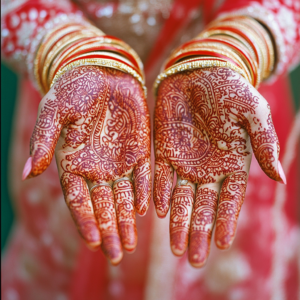
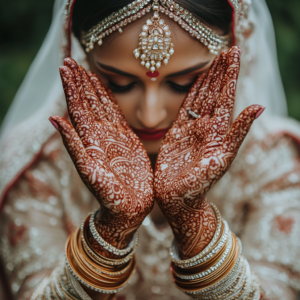
The Spread and Evolution of Mehndi Over Time
Mehndi has continuously evolved and spread worldwide, from the small villages of South Asia to major cities globally. The development of Mehndi has not been limited to traditional designs but has expanded into modern forms, incorporating elements of contemporary art and global culture. In the modern world of fashion and art, Mehndi has transcended the boundaries of traditional ceremonies to become a trend in fashion and personal expression, appreciated in both the East and the West.
Conclusion
The history of Mehndi is a story of connection between civilizations, of cultural and religious exchanges over many centuries. This art, combining beauty and spiritual meaning, has transcended time and space to become a global cultural symbol. Regardless of its origin, Mehndi continues to grow and is celebrated as an invaluable artistic heritage of humanity. Tracing the origins of Mehndi is not only an exploration of the past but also a journey to honor the cultural and traditional values that have made this art form unique and enduring.
